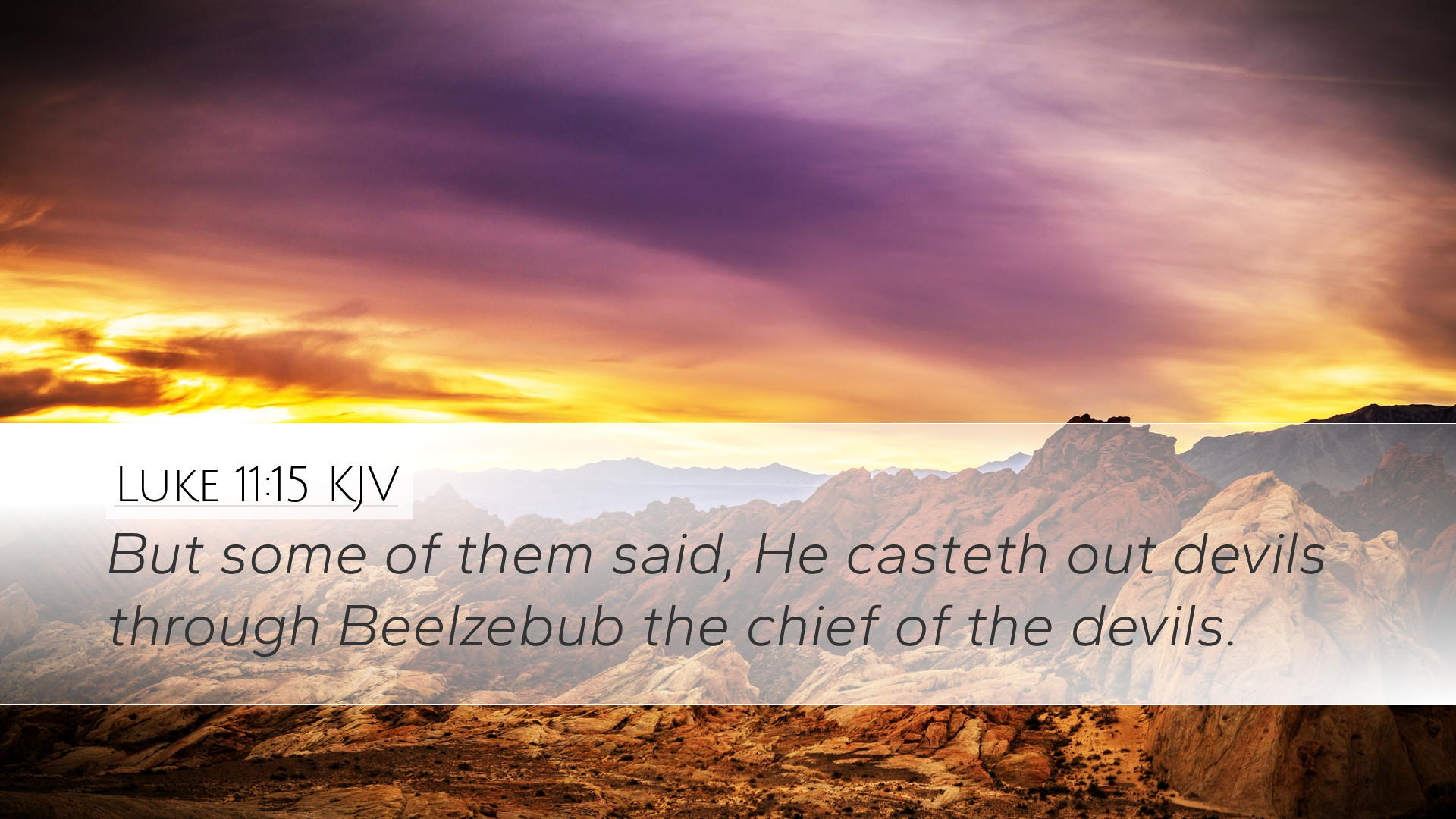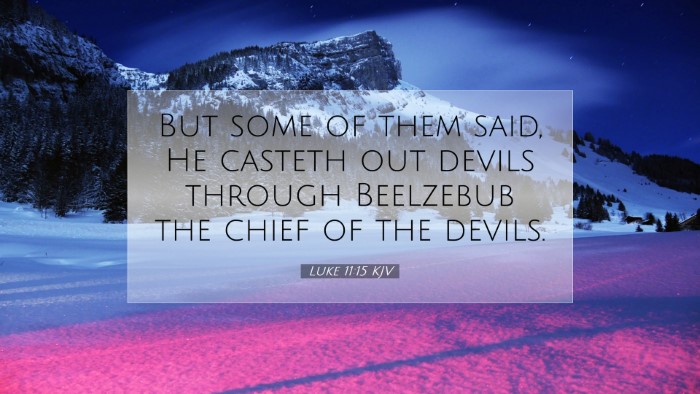Bible Commentary on Luke 11:15
Verse: “But some of them said, ‘He casts out demons by Beelzebul, the ruler of the demons.’” (Luke 11:15, ESV)
Introduction
This verse presents one of the key moments in the Gospel of Luke, where Jesus faces opposition regarding His divine authority and the source of His power. The charge that He casts out demons by the power of Beelzebul—the prince of demons—not only reveals the spiritual conflict of the times but underscores the varying perceptions of Jesus among the people.
Contextual Background
The setting of this verse is pivotal in understanding its implications. Jesus had just performed a miraculous exorcism, illustrating His power over unclean spirits. The responses from the crowd exhibit a division: some recognize His authority, while others ascribe His power to demonic influences.
Matthew Henry’s Insights
Matthew Henry describes this verse as a demonstration of both the miracle and the malice. He notes that the critics of Jesus were quick to attribute His miraculous works to satanic forces. He emphasizes that their accusation stems from envy and misunderstanding, illustrating a broader human tendency to dismiss divine workings due to hardened hearts.
- Divine Authority vs. Human Criticism: Henry underscores how Jesus’ miracles were often met with ridicule instead of awe, revealing a spiritual blindness among some observers.
- Character of Beelzebul: The term “Beelzebul,” often interpreted as “lord of flies,” symbolizes the malevolent spirit associated with chaos and darkness. It reflects the nature of the accusations against Jesus—misplaced and rooted in evil.
Albert Barnes’ Perspective
Albert Barnes approaches this accusation with a view of the implications it bears on the nature of the spiritual realm. He highlights that attributing the works of Christ to Beelzebul denies the reality of His divine mission. Barnes elaborates on the absurdity of the charges, arguing that Satan would not cast out his own demons.
- Logic of the Accusation: Barnes points out that the argument presented by the accusers is self-defeating. If Jesus is casting out demons by Beelzebul, then that kingdom is divided against itself, which cannot stand.
- Witness to the Kingdom: The accusation serves as an indicator of a larger spiritual reality—the presence of God’s kingdom being manifested through Christ’s works.
Adam Clarke’s Commentary
Adam Clarke offers a detailed theological examination of the claim. He emphasizes the spiritual conflict between the kingdom of God and the domain of darkness. Clarke explains that the response from some in the crowd reflects an ongoing struggle between recognizing divine truth and the inclination toward disbelief.
- Nature of Division: He discusses the implications of spiritual division, positing that those who align with the accusers effectively stand against God’s revelation in Jesus.
- Call to Discernment: Clarke calls upon readers to recognize the spirit in which they engage with the works of Jesus. Discernment is crucial in distinguishing between divine action and defilement.
Theological Implications
The theological weight of this passage extends beyond the immediate accusation. It serves as a reflection of humanity’s struggle with recognizing divine authority. The implications of attributing Jesus’ miracles to evil forces raise important questions about the nature of faith and skepticism.
Faith in the Face of Skepticism
For pastors and theologians, this passage calls for an understanding of the nature of faith. It challenges readers to consider how doubt and skepticism can obscure divine action in their lives and ministries.
Spiritual Warfare
Luke 11:15 can also be interpreted through the lens of spiritual warfare. The confrontation between Jesus and the accusations against Him symbolizes the broader conflict between good and evil, light and darkness.
Conclusion
In summary, Luke 11:15 serves as a profound illustration of the challenges faced by Jesus during His ministry, as well as the responses of the people to His divine authority. The insights from the public domain commentators provide depth to understanding the spiritual dynamics at play. As pastors, students, and theologians reflect on this verse, they are invited to engage with the themes of faith, spiritual discernment, and the overarching narrative of the Kingdom of God breaking into the world.


